-
Standard Doppler
LCD Display & Speaker
Regular price $119.00Regular priceUnit price per$139.00Sale price $119.00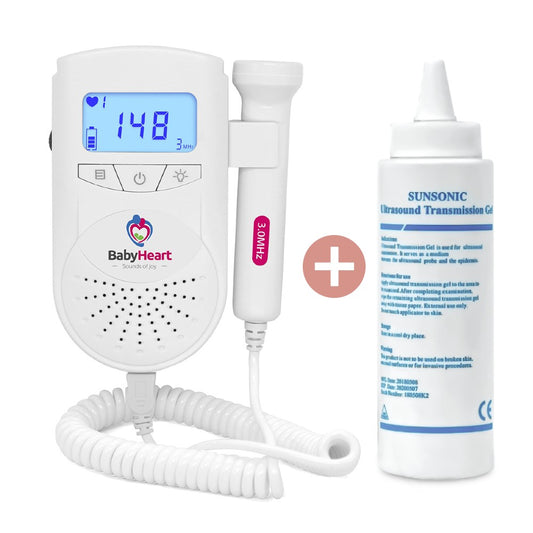 Sale
Sale -
BabyHeart Advanced Fetal Doppler
Rechargeable Unit
Regular price $159.00Regular priceUnit price per$198.00Sale price $159.00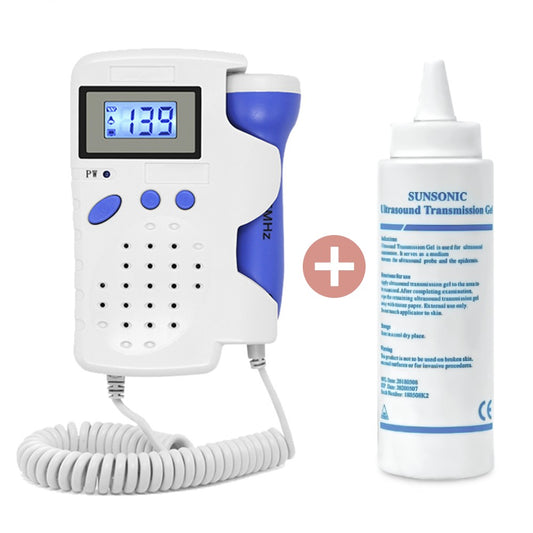 Sale
Sale -
Premium Fetal Doppler
Comes with a visual heartwave monitor
Regular price $199.00Regular priceUnit price per$235.00Sale price $199.00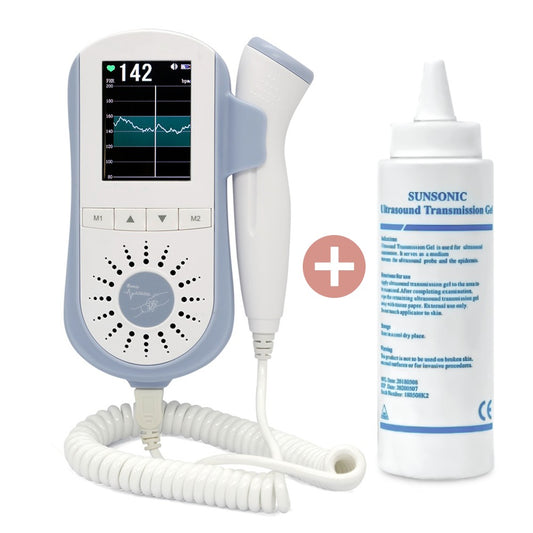 Sale
Sale -
Mini Doppler
Small, lightweight and very easy to use
Regular price $59.95Regular priceUnit price per$69.99Sale price $59.95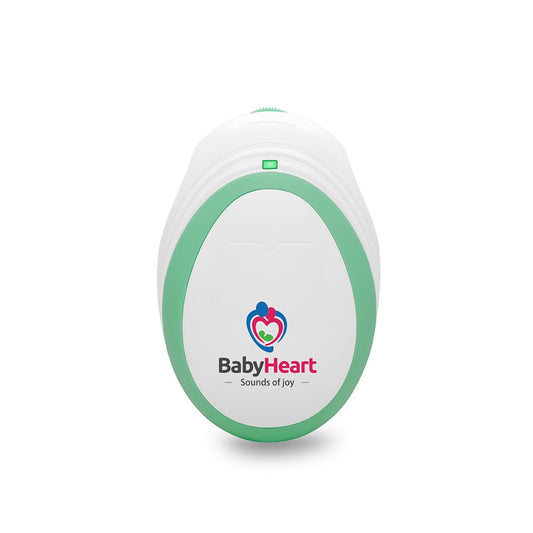 Sale
Sale -
Fetal Doppler Gel - 250ml
Fetal Doppler Gel 250ml
Regular price From $15.99Regular priceUnit price per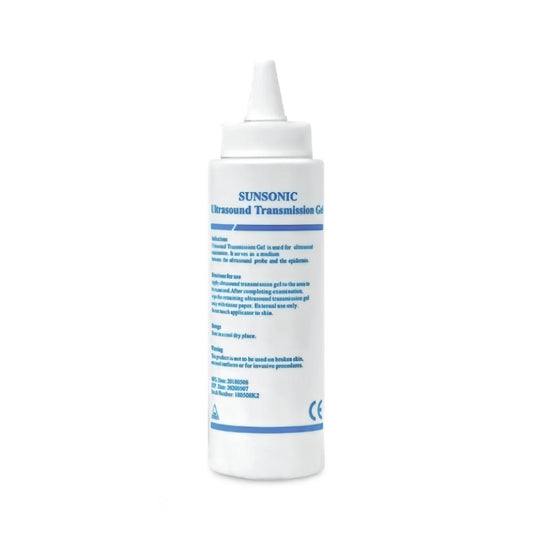
Heartbeat Doppler
If you’re looking for a heartbeat doppler, look no further than the medical-grade, at-home fetal doppler range available to browse and order online at BabyHeart Australia.
We know that hearing your baby’s heartbeat for the first time is truly special. With modern ultrasound technology, we’ve made it possible for you to hear those sounds of joy at home between your doctor’s appointments.
We offer lightweight and portable prenatal heartbeat monitors for every budget. With a range of battery-powered and rechargeable devices, you can listen to your bub at any time, anywhere. All BabyHeart at home fetal dopplers are entered in the Australian Register of Therapeutic Goods (ARTG no. 277143), so you know you’re purchasing a doppler machine that is safe.
Each of our baby heart monitors offers different features. For mums on the move, our mini doppler fits easily into a pocket or bag. With a double standard audio jack, you can discreetly listen to your baby as well as share the experience with your loved ones.
Our standard and advanced heart fetal dopplers display your bub’s heartbeat numerically as well as via headphone and speaker audio, so you can easily record it for monitoring between appointments. They also offer a variety of analysis features, including average fetal heart rate.
For the most curious parents, our premium doppler boasts a vibrant LCD screen that allows you to visualise your baby’s heartbeat in waveform and can detect the heartbeat of your bub earlier than any other doppler in our range.
To buy fetal doppler and get your hands on the best baby accessories, browse and order from our BabyHeart online collection today.
How does a heartbeat doppler work?
A heartbeat doppler device utilises ultrasound technology to amplify the sound of your baby’s heartbeat. It does this by sending sound waves through your skin and tissue to detect movement in the form of blood flow (such as blood moving through the baby’s heart arteries), which then causes the waves to be bounced back and amplified through the microphone and audio output of the fetal doppler. As a result, using a pregnancy doppler ultrasound allows you to listen to your baby’s heartbeat.
When you use an at-home fetal doppler, it’s important to know that you’ll also be hearing the heartbeat and blood flow of the parent carrying the baby. In fact, these sounds will be much louder than that of the baby, so it’s important to remember that your baby’s heartbeat will be much faster than yours.
If it’s your first time, using your heartbeat doppler with the guidance of your midwife or medical provider is a great way to ensure you’re able to identify the different sounds and listen for what you’re really after.
When can you hear the baby’s heartbeat with a doppler?
Typically, a baby’s heartbeat becomes audible using a pregnancy heartbeat monitor around the end of the first trimester, or at approximately 10 to 12 weeks of gestation.
It’s important to know that you – or your doctor – won’t always be able to hear a heartbeat before this. Some fetal heart rates are difficult to detect early on in pregnancy due to the size and positioning of the fetus inside the womb. In such instances, your doctor will use a transvaginal ultrasound to check your baby’s health instead of using a probe on your belly as per a fetal doppler ultrasound.
Other common occurrences that might impact your ability to listen to your baby when using a fetal heart monitor include user error, e.g., not enough pressure with the probe, inconsistent ultrasound gel application, poor body positioning, or moving the heartbeat doppler probe too quickly.
Different fetal heartbeat monitors will detect your baby’s heartbeat at different times. This is due to differences in the quality of ultrasound signal technology and the strength of the power supply between machines. All BabyHeart prenatal heartbeat monitors are medical grade and FDA approved. This means they’re used by the experts and are safe for home and clinical use.
If you’re excited to hear the sound of your baby’s heartbeat as soon as possible, all our dopplers – premium, standard, and advanced fetal heart rate doppler – can typically detect a heartbeat from 12 weeks of pregnancy. Because of this, they are used by many midwives, ob-gyns, and doctors. They are also a popular choice for many new parents.
Why is it a good idea to have a heartbeat doppler?
Having a heartbeat doppler at home has many benefits; being able to hear your baby’s heartbeat as they move is a truly special experience and a wonderful way to start to bond with your baby before their delivery earthside. A baby heart monitor allows you to do this from the convenience and privacy of your own home while waiting for your next doctor’s appointment.
A doppler machine lets you check in on your baby a few times a week. Sometimes, even just a quick listen to your baby adds so much wonder in being an expecting parent.
That said, it’s important to remember that using a heartbeat doppler should never replace proper medical examination. If you cannot feel your baby moving or have concerns about your baby’s heartbeat, seek emergency diagnosis and professional treatment immediately.




